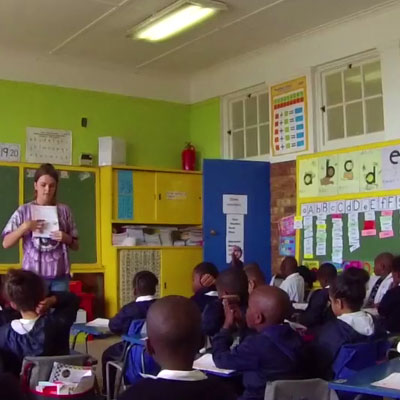If your students spend more time gazing out of the window than they do speaking English, it’s time to inject a little energy into your TEFL classes. After all, you don’t want to be that boring English teacher whose lessons everyone dreads going to, do you? Of course not! So, here are just five tried and tested ways on how to engage students – all you need is to inject a little fun in the classroom!
Items to bring to the classroom:
- Games
- Music
- Videos
Things that will help:
- Points System
- Being Energetic
Total time: 60 minutes
-
1. Games
Games are the adrenaline shots of the TEFL world, they say to your students that English is entertaining and exciting, not tests and tenses. It’s not just all fun and games though if used properly, they can help your students build their speaking confidence and even practise specific language.
Just keep in mind that you can’t play games just to the sake of playing a game: always keep your target language in mind and want you want your students to get out of the activity.
![TEFL teacher high fiving students]()
-
2. A Points System
This is a great one for kids especially, when you first take on a class split them into teams of around six students. Let them pick their own team name and design a poster for their team which you can put up on the classroom wall. Award each team points for being well behaved, winning a game etc and deduct points for late homework, speaking their own language in class etc. As it’s a team effort you’ll find peer pressure helps keep your students motivated, just make sure you stick to the rules you set, otherwise you could find yourself with all-out mutiny on your hands.
![TEFL teacher stood at the front of classroom - China]()
-
3. Music
While a lot of songs have totally ludicrous lyrics, if you find one that makes sense and which actually tells some kind of story (e.g. Stan by Eminem), hold onto it. It’s a great way to get your students interested in increasing their vocabulary and to help make sense of different grammatical structures. You can start off with a gap fill exercise, having them listen to the song and fill in missing words. Alternatively, you could cut out cards with the lyrics written on and have them rearrange them into the correct order. If your students are more advanced and the song has a story you could get them to write what they think would happen after the song ends.
![TEFL classroom]()
-
4. Video
Depending on how technologically advanced your classroom is, video can be a fantastic way to improve your students’ comprehension skills and work on specific vocabulary. i-to-i TEFL graduate Halidemine had a fantastic idea around this in using subtitled trailers of movies your students haven’t seen: first asking them questions about the trailer, then asking what might happen at the end. It’s a good way to practice different tenses – ‘What will happen in the movie’ (future) and ‘What could happen in the movie’ (conditional).
![watch i-to-i vid]()
-
5. Being Energetic Yourself
No matter how many flashy elements your lessons have, if you act bored, your students will pick up on this and think your classes are boring. Excitement is infectious, if you at least pretend that you find the past participle the most thrilling thing since time began, a little bit of your excitement will rub off on your students and you’ll soon find them much more energised and engaged, no matter what you’re teaching.
![Man using laptop to teach English online]()








